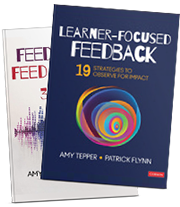As an educational community, it is time to reconsider our current approach to educator evaluation. Changes made over the past five years have turned performance review into a series of events strung together to monitor either teacher or leader performance within a school. This narrow definition has been promoted by well-meaning policy makers and reinforced by professional learning providers who have capitalized on opportunities to create compliance driven tools and resources that merely reinforced poor supervisory practice.
It now becomes increasingly important that leaders of schools, districts, and even state departments of education seek resources and professional learning programs that ensure coherence, alignment, and meaning. Too often, districts and schools are reacting to guidelines provided by their state department of education, resulting in a more complicated version of what they were already doing.
Instead of compliance we need to focus on the Cycle of Planning and Performance Improvement. This focus allows educator evaluation to be a more complete pathway towards performance improvement in schools.

Districts set themselves on a path towards authentic school improvement when they invest time in rethinking their vision for students. The planning associated with this rethinking should include the articulation of goals that include quality measurements of the highest leverage student outcomes. Districts and schools that then align adult and organizational practices to those goals establish an opportunity to ensure coherence in their work.
Those who do not take this path remain reactionary to what seems like an endless sea of needs, pulling human and fiscal resources in a thousand different directions. Focus on the practice we know leads to the most important student learning allows each of our professional and organizational actions (including educational evaluation) to work towards the same end – learning – once again, at a student, adult and organizational level. Because aren’t we all supposed to be learning?
Educational organizations must make authenticity a priority when evaluating, creating or selecting resources and professional learning designs for all personnel. What is most important is what these tools and services are designed to collectively generate; allocation of resources, both human and financial, towards performance improvement in alignment with a district’s or school’s strategic initiative.
Bottom line, and regardless of what tools and resources school leaders may select and implement, seeking ways to generate cogent plans for improvement rooted in quality feedback and responsive professional learning must be in place in order to make sense of educator evaluation in our schools.
Below are some resources that align well to an approach of educator evaluation that is rooted in feedback for improvement.
High Quality Resources for Planning and Performance Improvement
Strategic Planning
Coherence Planning – Jonathan Costa, EDUCATION CONNECTION
Jonathan Costa, Director of School and Program Services has clearly taken the lead in providing a practical solution for strategic planning. Unlike traditional strategic planning processes that encourage a diffusion of improvement energy and resources, Strategic Coherence Planning uses data-based planning assumptions to focus the process on an obtainable vision of a successful graduate and those highest leverage improvement processes that have demonstrated over time to make the largest impact on student learning and preparation for information age success.
Crosswalk to Teacher & Leader Performance Standards
Alignment Crosswalks & Rubric Implementation – ReVision Learning Partnership, LLC
ReVision Learning has worked hand in hand with hundreds of educators over the past five years to crosswalk teacher and administrator performance standards to the goals and measures outlined in their district strategic planning initiatives. Targeted training that ensures a deep understanding of teacher and leader performance standards, cultivates the skills to deliver on those standards and, ultimately, supports the development of supervision and feedback loops that provide targeted feedback for learning.
Professional Learning for Teachers and Leaders
Professional Learning Maps – Amplify Education, Inc.
Integrating findings into a map that includes targeted, supportive, fully vetted & aligned resources creates an environment of continuous learning for educators. Through diagnostic surveys, Amplify Education’s Professional Learning Maps personalizes learning by enabling individuals to understand and articulate the support they need, and for leadership to determine how to invest their time and resources that are most relevant to school and district improvement needs.
Routine Educator Feedback
Talent Feedback & Support – ReVIEW Talent Feedback System, LLC
Feedback is the single most important element of making evaluation practice meaningful. Once the focus areas have been clearly established educators need a tool to support the on-going interaction among supervisors and the educators they serve. The ReVIEW Talent Feedback system goes beyond tagging of evidence from event-based evaluation models to providing meaningful educator feedback aligned to the highest leverage performance standards, allowing for feedback to serve as the first tier of on-going professional learning.



Leave a Reply